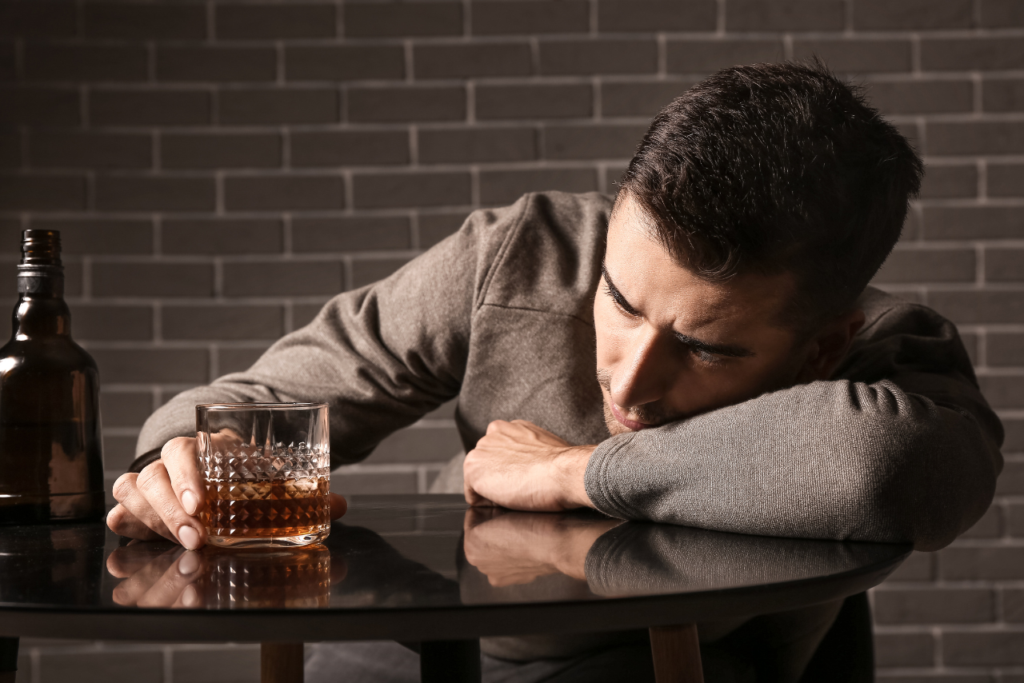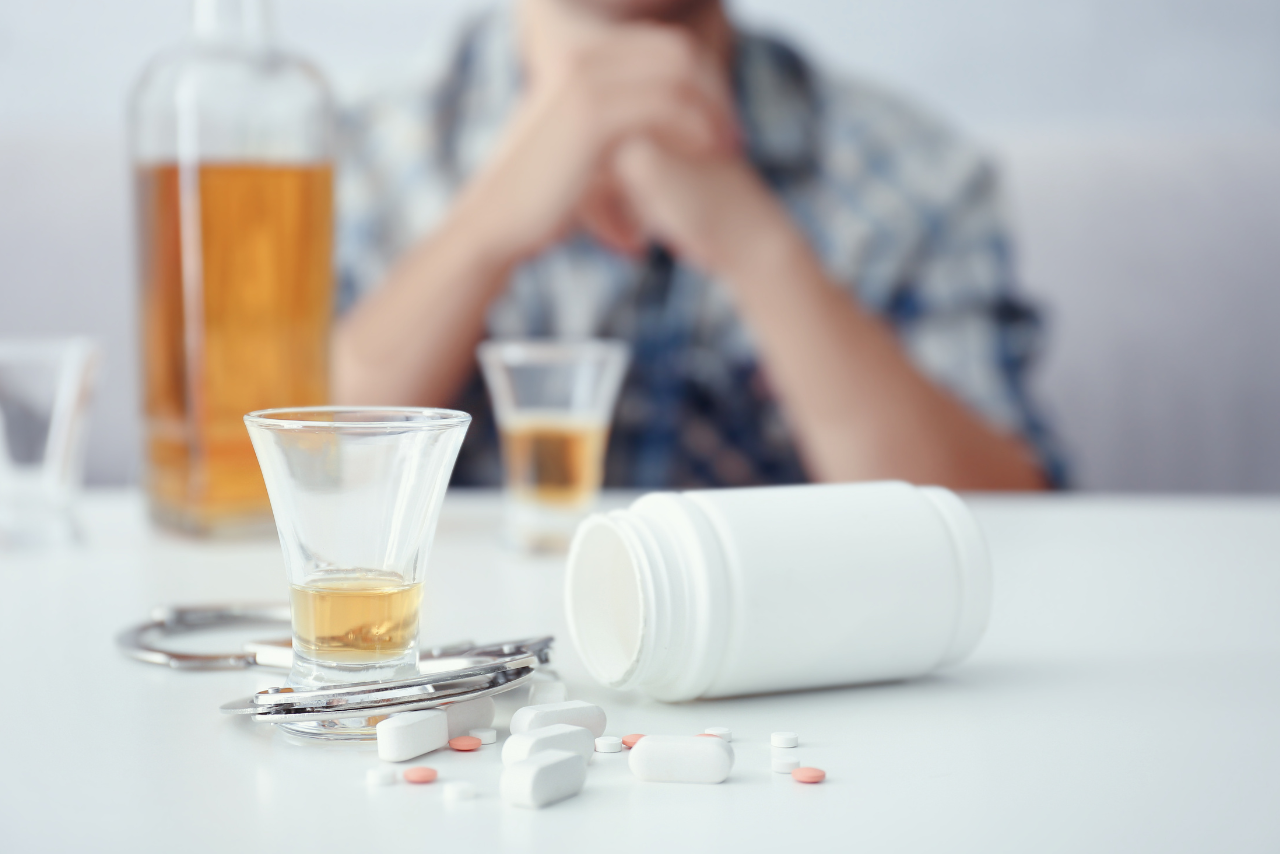Combining medications with alcohol can be risky, and mixing gabapentin and alcohol is no exception. Gabapentin, a medication often prescribed for nerve pain, seizures, and anxiety, affects the brain and nervous system. When paired with alcohol, which also impacts the central nervous system, this combination can lead to a variety of side effects, some of which can be dangerous.
In this article, we’ll explore what happens when gabapentin and alcohol are mixed, including potential side effects, risks, and ways to stay safe.
If you or a loved one has questions about substance use and wants support, call us at Kemah Palms Recovery or head over to our admissions page now.
Gabapentin vs. Alcohol
Gabapentin, also known by its brand names Neurontin and Gralise, was originally developed as a seizure medication. It is also used to relieve nerve pain and manage symptoms of certain mental health conditions. As a medication that impacts brain function, gabapentin may cause drowsiness, dizziness, and other side effects.
Alcohol, on the other hand, is a depressant that affects the brain and nervous system. It can slow down vital functions, such as heart rate and breathing.
Mixing gabapentin and alcohol can amplify these effects, leading to increased drowsiness, dizziness, confusion, and, in severe cases, more dangerous health risks. Although gabapentin and alcohol are both legal substances, their combined use can be harmful, especially without medical supervision.
Side Effects of Mixing Gabapentin and Alcohol
When gabapentin is combined with alcohol, the effects of both substances can become intensified. Here’s a closer look at the potential side effects:
- Increased Drowsiness and Fatigue: Both alcohol and gabapentin can make you feel drowsy. When taken together, this sedative effect can become much stronger, potentially making it difficult to stay awake or alert.
- Dizziness and Loss of Coordination: Gabapentin alone may cause dizziness, and adding alcohol to the mix can increase this effect. This heightened dizziness can make walking, driving, and other activities unsafe.
- Confusion and Memory Impairment: Both gabapentin and alcohol can lead to confusion and impact cognitive function. Together, these substances can result in memory lapses, poor judgment, and difficulty focusing.
- Nausea and Vomiting: Some individuals may experience nausea or vomiting when combining gabapentin and alcohol. This can lead to dehydration and other complications if severe.
- Slowed Breathing and Heart Rate: One of the most concerning effects of mixing both substances is the potential for slowed breathing and heart rate, which can be life-threatening.
These side effects can range from mild to severe depending on individual tolerance levels, dosage, and overall health. People with pre-existing health conditions, especially those affecting the liver, kidneys, or respiratory system, may be at greater risk.

Increased Risk of Overdose
Combining gabapentin with alcohol can increase the risk of overdose. Since both substances have sedative properties, they can work together to suppress the central nervous system, which controls critical functions like breathing and heart rate. When these vital functions slow down too much, it can lead to a life-threatening overdose.
Signs of Overdose When Mixing Gabapentin and Alcohol:
- Extremely slow or shallow breathing
- Loss of consciousness or inability to wake up
- Unresponsiveness
- Bluish lips or skin (a sign of oxygen deprivation)
- Confusion or disorientation
If you suspect someone may be experiencing an overdose after mixing gabapentin and alcohol, it’s essential to seek emergency medical help immediately.
Why People Mix Gabapentin and Alcohol
Although mixing gabapentin and alcohol is not recommended, some people may combine them without realizing the potential dangers. Others may mix the two substances in an attempt to increase relaxation, numb pain, or intensify the effects of either substance. However, this can lead to a dependency on both substances, which can make recovery more challenging.
Some individuals might unknowingly mix gabapentin and alcohol due to a lack of understanding of the side effects. Healthcare professionals usually advise against consuming alcohol while on gabapentin, but people may not always heed this advice.
Risks of Long-Term Use of Gabapentin and Alcohol
The long-term effects of mixing gabapentin and alcohol can extend beyond the immediate side effects. Regularly combining these substances can lead to the following risks:
- Increased Tolerance: Over time, the body may become tolerant to gabapentin, alcohol, or both, meaning more of each substance is required to feel the same effects. This increased tolerance can lead to higher doses and greater health risks.
- Potential for Dependency: Using both gabapentin and alcohol regularly may result in physical and psychological dependence on both substances. This dependency can make it challenging to stop using either substance without professional support.
- Mental Health Decline: Long-term use of gabapentin and alcohol together can worsen symptoms of anxiety, depression, and mood instability.
- Organ Damage: Chronic use of both substances can place strain on the liver and kidneys, potentially leading to organ damage over time.
Safe Alternatives to Mixing Gabapentin and Alcohol
If you’re prescribed gabapentin and wondering about safe ways to manage your symptoms without alcohol, here are some tips:
- Follow Your Doctor’s Advice: Always take gabapentin as prescribed and ask your doctor about any potential interactions with alcohol or other medications.
- Seek Healthier Coping Mechanisms: Engage in activities like exercise, meditation, and social support to manage stress and anxiety without turning to alcohol.
- Talk to Your Doctor: If you’re struggling with cravings or find it hard to avoid alcohol, speak with a healthcare professional. They can help you find safer ways to manage your health.
Recognizing When to Seek Help
If you or a loved one is struggling with the combined effects of gabapentin and alcohol, now may be the time to seek professional support. Recognizing when to reach out is an important step, especially if any of the following signs apply:
- Difficulty reducing or stopping the use of either substance
- Experiencing harmful health effects from mixing gabapentin and alcohol
- Needing to increase dosage or frequency to achieve the same effects
- Finding it challenging to maintain daily responsibilities due to substance use

Treatment Options for Substance Use at Kemah Palms Recovery
At Kemah Palms Recovery, we provide a compassionate, evidence-based approach to help individuals address substance use challenges. Our team of experts can develop a personalized treatment plan to support you in safely reducing or stopping the use of gabapentin, alcohol, or both.
Our treatment programs include:
- Detoxification Services: Our medically supervised detox provides a safe and comfortable environment for individuals to eliminate substances from their systems.
- Residential Treatment: This immersive residential program provides a safe, supportive space for clients to focus entirely on their recovery journey with 24/7 care.
- Partial Hospitalization Program (PHP): Our PHP offers structured, intensive treatment with daily support to help clients make significant progress in their recovery.
- Intensive Outpatient Program (IOP): Our IOP allows clients to continue recovery with flexibility, balancing treatment with personal or professional responsibilities.
- Individual Counseling: Personal therapy sessions allow clients to explore the reasons behind their substance use and develop coping strategies.
- Holistic Care: Kemah Palms offers a variety of holistic therapies, including meditation, yoga, and mindfulness, to support overall wellness and reduce cravings.
- Equine Therapy: At Kemah Palms in Houston, equine therapy helps individuals build trust, confidence, and emotional awareness, supporting holistic addiction recovery.

Call Us At Kemah Palms Recovery Today
Mixing gabapentin and alcohol can lead to serious health complications and even life-threatening consequences. If you’re struggling with the use of either substance, consider reaching out to professionals who can provide the guidance and support you need.
If you or someone you know is facing challenges with alcohol or substance abuse, help is available. At Kemah Palms Recovery, our team is dedicated to supporting individuals on their journey to a healthier, substance-free life. Call us today or visit our admissions page to take the first step towards healing!







